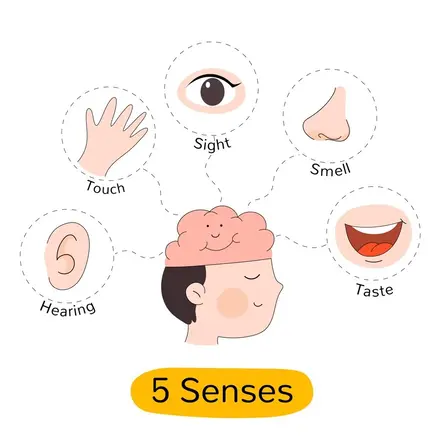Preventive Healthcare
Everything You Need to Know About Menopause
2054 Views
0

What is Menopause?
Menopause is a natural biological process that marks the end of a woman's menstrual cycle. Medically, it is diagnosed after 12 consecutive months without menstruation and usually occurs in the late 40s or early 50s. Despite the fact that menopause is a natural element of aging, it can lead to physical and emotional changes that can hinder everyday life.
What are the Three Stages of Menopause?
Menopause is a natural biological process that occurs in three stages: Peri-Menopause, Menopause, and Post-Menopause.
- Peri-Menopause is the transitional phase preceding menopause. This phase often begins when a woman is in her 40s, but can begin even earlier. During this stage, estrogen levels fluctuate, causing irregular menstrual cycles, hot flashes, night sweats, and mood changes. This stage can last anywhere from a few months to a few years.
- A woman enters menopause when she has not had a period for 12 months, usually it occurs around the age of 51. During this time, the ovaries produce significantly less estrogen and progesterone, which leads to the end of menstruation and fertility. Common menopausal symptoms include hot flashes and vaginal dryness.
- Post-Menopause begins after menopause has been reached and lasts for the rest of a woman's life. Hormone levels remain low, and symptoms of menopause may gradually ease. However, the risk for certain health conditions, such as osteoporosis and heart disease, increases due to the lower hormone levels. Regular medical check-ups and a healthy lifestyle are crucial during this stage.
What is the Normal Age for Menopause?
The average age of menopause is around 51, but it varies greatly among individuals. Early menopause may occur as early as late 30s or early 40s, while late menopause may not begin until mid-50s.
What are the Symptoms of Menopause?
Menopause symptoms vary widely but commonly include hot flashes, night sweats, and irregular periods. Along with these symptoms women may also experience mood swings, irritability, and sleep disturbances.
Common physical changes during menopause include weight gain, thinning hair, and dry skin. Vaginal dryness and discomfort during sex can occur due to decreased estrogen levels.
Other symptoms of menopause include decreased libido, difficulty concentrating, and memory lapses. Joint pain and headaches may also arise.
The intensity and duration of these symptoms are different for each woman, with some experiencing mild discomfort and others facing more severe challenges. Managing these menopause symptoms often involves lifestyle adjustments and medical treatments.
How Long Do You Have Symptoms of Menopause?
Most of the women experience menopause symptoms for about four to five years, but for some, it can last longer. A few women might experience menopausal symptoms for up to ten years before menopause actually begins.
Why Does Menopause Happen?
Let's delve deeper into the menopause causes. As women age, their ovaries produce less estrogen and progesterone (the hormones that regulate menstruation), leading to decreased fertility. Eventually, in your early 50s on average, your ovaries stop releasing eggs, marking the onset of menopause.
Menopause can also be caused due to surgical removal of the ovaries (oophorectomy), hysterectomy (without removing the ovaries), chemotherapy or radiation therapy for cancer treatment, and primary ovarian insufficiency.
What Hormonal Changes Happen During Menopause?
During the transition of perimenopause and menopause, the level of estrogen and progesterone fluctuates, causing various menopause symptoms. Around menopause, these hormone levels decline sharply causing cessation of menstrual periods.
How Do I Know if I'm in Menopause?
If you are experiencing any menopause symptoms like irregular periods or hot flashes in your late 40s or early 50s, you might be entering perimenopause. However, if you haven't had a period for 12 months, you may have entered menopause.
How is Menopause Diagnosed?
Menopause diagnosis is mainly clinical, based on your symptoms and menstrual history. Your doctor may also order blood tests to check levels of follicle-stimulating hormone (FSH) and estradiol (an estrogen form), which can provide additional confirmation.
Can Menopause Be Treated?
Although menopause is not a disease that requires treatment, menopause treatment options can manage or reduce symptoms. This includes lifestyle modifications such as dietary changes, regular exercise, and quitting smoking; hormonal therapy; over-the-counter or prescribed medications to treat hot flashes; and topical treatments for vaginal dryness.
Can I Get Pregnant During Menopause?
It is a common misconception that pregnancy is not possible during peri-menopause. Until you have gone 12 months without a period, there is still a possibility of pregnancy. If you wish to avoid pregnancy, continue to use contraception until menopausal status is confirmed.
What are the Long-Term Health Risks Associated with Menopause?
Post-menopausal women are at increased risk of several health issues due to decreased estrogen levels. These include heart disease, osteoporosis, urinary incontinence, sexual function difficulties, and weight gain.
Frequently Asked Questions
Does Menopause Cause Weight Gain?
Yes, many women tend to gain weight during the transition to menopause. This could be due to a combination of hormonal changes, age-related muscle loss, and lifestyle habits.
Does Menopause Affect Your Teeth or Mouth?
Yes, menopause symptoms may include oral discomfort, such as dry mouth, burning sensation in the mouth, or altered taste sensations. It is important to maintain good oral hygiene and consult a dentist regularly for preventive care.
Does Menopause Affect Your Eyes?
Due to hormonal fluctuations, some women experience vision changes and dry eye syndrome during menopause. Regular eye check-ups can help identify and treat these conditions quickly.
Can Menopause Cause Facial Hair Growth?
Yes, due to the decrease in estrogen and an increase in testosterone during menopause, some women may experience increased hair growth on the face. If this concerns you, consult your healthcare provider for effective treatment options.
Can Menopause Cause Depression?
Many women experience mood swings and depression during menopause, possibly due to hormonal fluctuations. It's important to seek professional help if you constantly feel sad or hopeless.
Can I Have an Orgasm After Menopause?
Yes, but due to menopausal changes such as vaginal dryness and decreased libido can affect sexual function. However, these are treatable and discussing your concerns with your doctor can certainly help.
Conclusion
Navigating through the transition to menopause can be a daunting task without the right knowledge and support. But understanding these changes in your body, recognizing menopause symptoms, knowing the causes, getting a timely diagnosis and exploring different menopause treatments can be empowering. Prioritize self-care, stay active, eat a balanced diet, and don't hesitate to discuss your health concerns with your doctor.
A professional diagnostic service like Metropolis Healthcare provides reliable pathology testing and health check-up services right at your home comfort. Their qualified technicians will collect blood samples at home ensuring a hassle-free process. With accurate test results delivered via email and their user-friendly TruHealth app, managing health becomes easier than ever.























 WhatsApp
WhatsApp